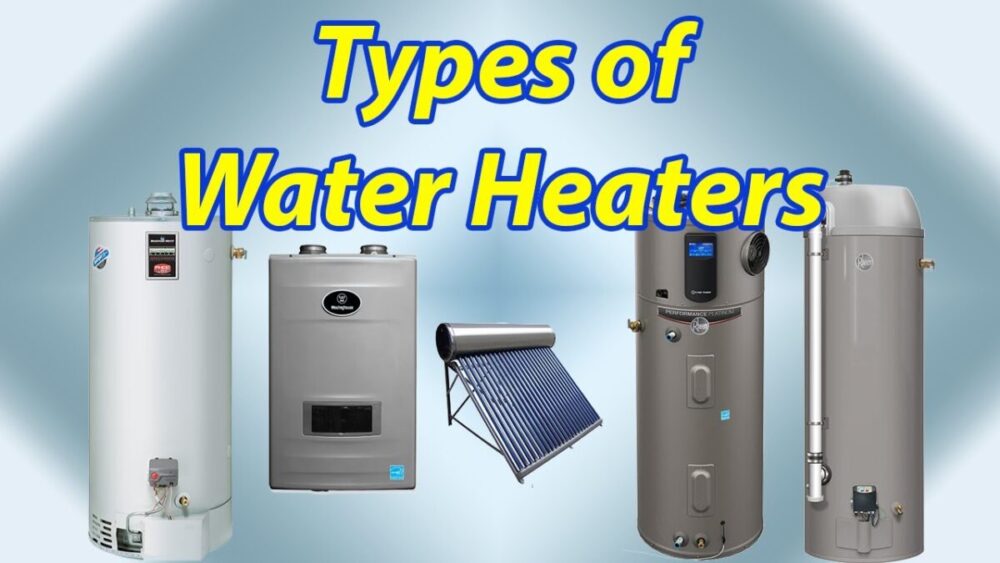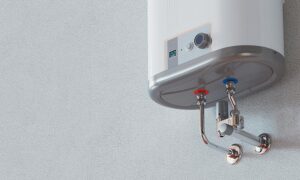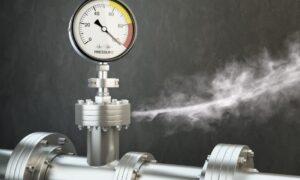Water heaters are an essential aspect of any living space due to the fact that they provide hot water for bathing, cooking, and cleaning. But with so many types available, it can be quite difficult to figure out which one is best for your needs.
From tankless to electric models, this guide will help you understand the different types of water heaters available and determine which one is right for you and your family.
Continue reading to learn more!
Once you’ve wrapped up today’s post, feel free to check out this blog to learn more about tankless water heaters.
What is a Water Heater?
A water heater is a machine that heats up water in your home. It helps you to take baths, cook food, and clean and allows you to complete day-to-day tasks with relative ease.
5 Different Types of Water Heaters
As mentioned earlier, there are several different types of water heater units that homeowners can choose from. Each type of water heater performs the same task but does so in different ways and through the use of various parts.
Here’s a list of five of the most common types of water heaters on the market:
Unit #1 — Tankless Water Heaters
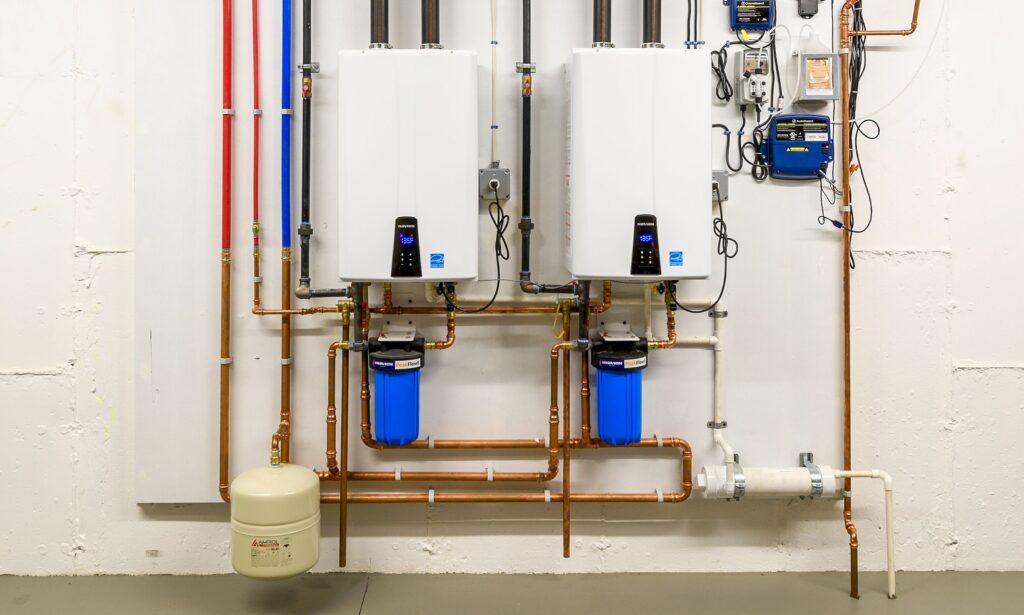
Source: thisoldhouse.com
Tankless water heaters are a convenient and efficient alternative to traditional tank-style models. The main advantage of a tankless system is that it heats water on demand, meaning you only use energy when hot water is needed.
This eliminates the need for an extra storage tank, making them more compact than regular models. Additionally, they offer greater temperature control and can provide unlimited hot water for larger households or commercial applications.
Unit #2 — Electric Water Heaters
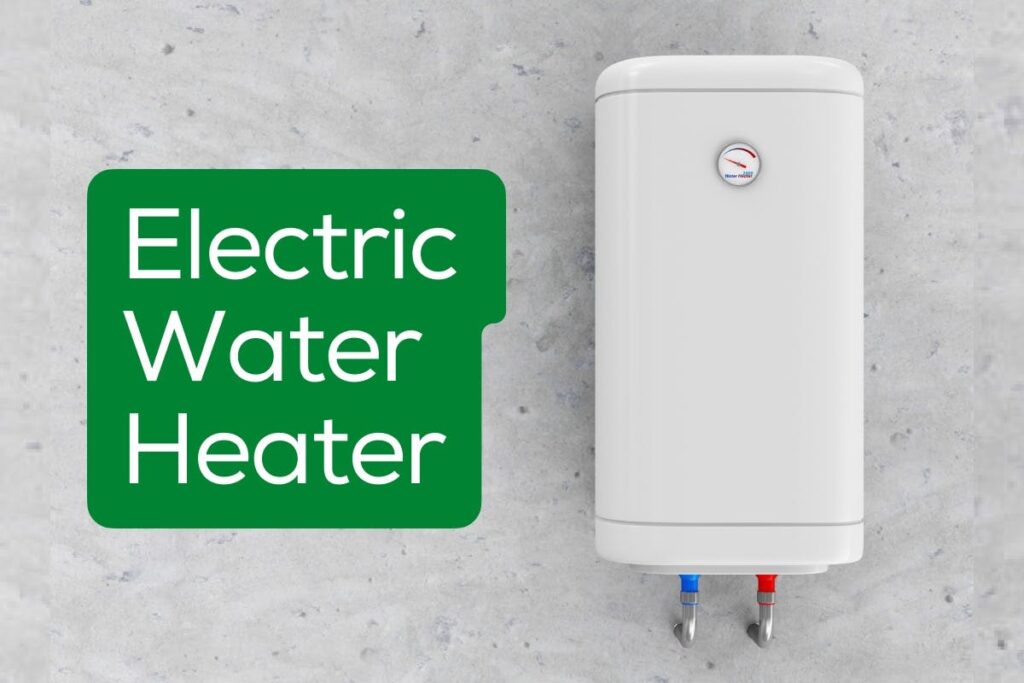
Source: palmetto.com
Electric water heater unitss are one of the most popular types because they’re relatively inexpensive and easy to install. They typically come in either a storage tank model or a tankless design and vary in size depending on your household’s needs. Electric units also require less maintenance than other types, making them a great choice for those who don’t want to worry about upkeep.
Unit #3 — Gas Water Heaters
Gas water heaters use natural gas or propane to heat the water and are some of the most energy-efficient models on the market. They are ideal for large homes with high hot water demands due to their ability to produce more hot water faster.
However, they require professional installation and must be properly vented, so it is advisable to consult a licensed installer before purchasing one of these units.
Unit #4 — Solar Water Heaters
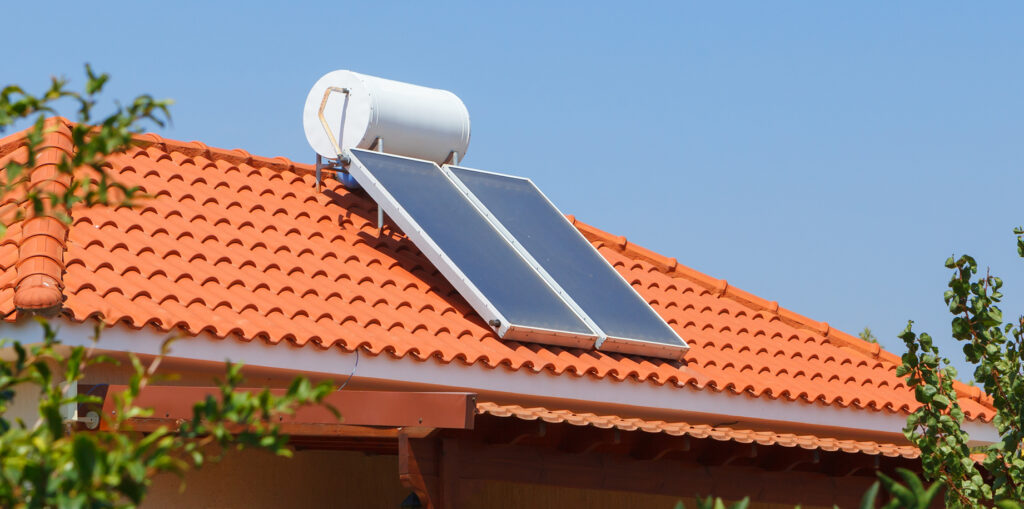
Source: ensia.com
Solar water heaters are a great alternative to traditional water heaters. They are highly efficient and reliable, and they provide hot water without relying on non-renewable energy sources. Solar water heaters are also eco-friendly, making them a popular choice for individuals looking to reduce their carbon footprint.
While the upfront cost of a solar water heater may be higher than that of a conventional unit, it can save you money over time. These systems can last up to 20 years or more, and the cost of operating them is much lower than traditional heaters. In addition, some states offer tax incentives or rebates to individuals who install solar water heaters, which can further offset the initial cost.
One of the main benefits of solar water heaters is that they use renewable energy. This means that they don’t contribute to greenhouse gas emissions and don’t depend on fossil fuels for their operation. As a result, they are an excellent choice for environmentally-conscious individuals who want to reduce their impact on the planet.
Unit #5 — Heat Pump Water Heaters
Heat pump water heaters are becoming an increasingly popular choice for homeowners and businesses due to their energy efficiency and advanced features. These systems work by using electricity to extract heat from the air or ground and transfer it into the water tank, making them highly efficient compared to traditional electric water heaters.
One of the main advantages of heat pump water heaters is their ability to provide greater temperature control. They can be set to maintain a specific temperature, ensuring that you always have hot water when you need it. Additionally, heat pump water heaters are capable of providing unlimited hot water for larger households or commercial applications, making them an excellent choice for those with high hot water demand.
Heat pump water heaters are also highly energy efficient, as they use existing heat rather than generating heat from scratch. This can result in significant cost savings on energy bills over time. Some models even have smart features that can optimize performance and energy usage.
How Much Does a Water Heater Cost?
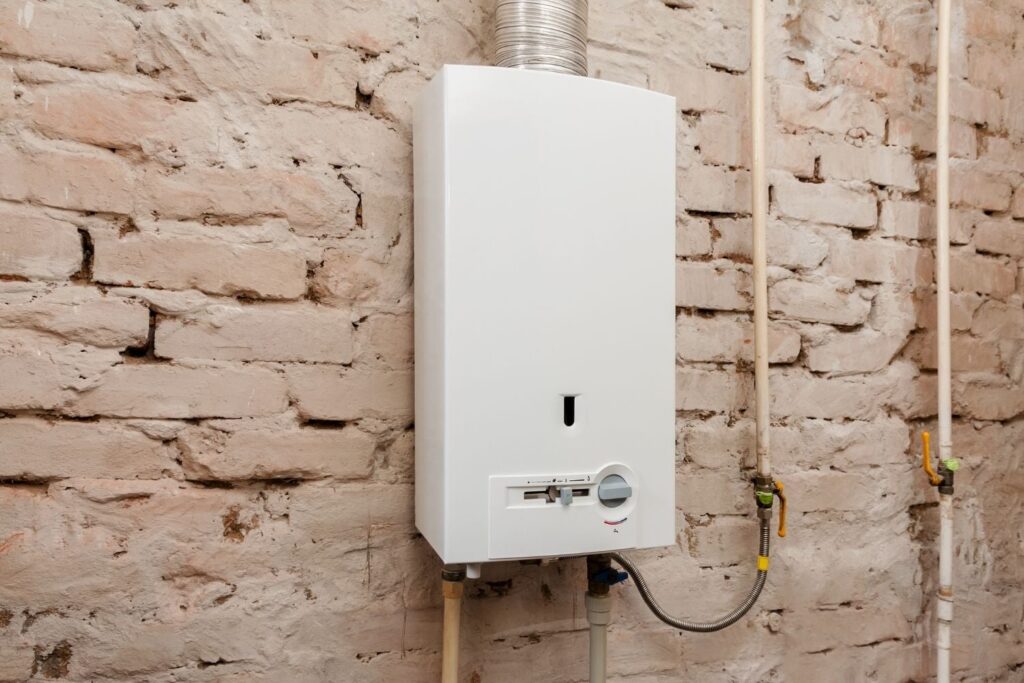
Source: bobvila.com
It can cost a lot to buy and install a new water heater in your home. Different types of water heaters have different prices. Some cost more than others. You might also need to pay for someone to help you install it. It usually costs more money if the person needs to do special work or use special tools for installation.
The cost of your water heater will depend on the type of water heater you choose and the size. Generally, electric water heaters with tanks are cheaper than other models. Tankless units tend to be more expensive but they are more energy-efficient too.
Gas water heaters can also get pricey because you must pay for installation by a licensed installer and must pay for natural gas or propane fuel as well. Heat pump water heaters cost more upfront than tank models, but they can save money in the long run due to their efficiency rating. Solar water heaters have the highest price tag, but they can also save significant amounts of money over time.
No matter what type of water heater you choose, it is important to consider factors such as the size of your household and hot water needs, installation cost, and energy efficiency when making your decision.
5 Types of Water Heaters — Conclusion
When choosing a water heater for your living space, there are many factors to consider. Different types of water heaters offer different features and come with varying costs.
All in all, it is important to research all available options carefully before making your final decision so that you get the right type of system for your needs at an affordable price point.

